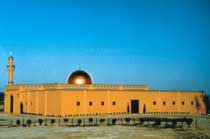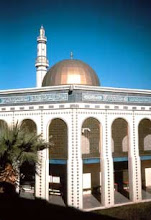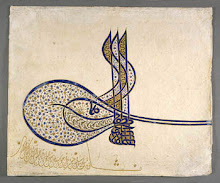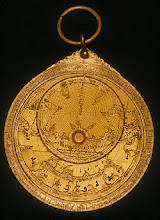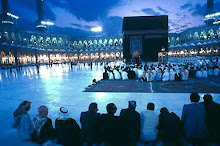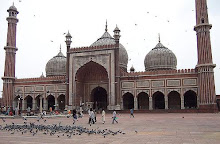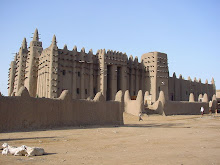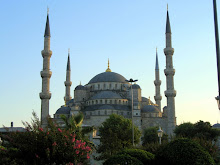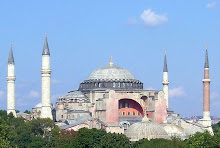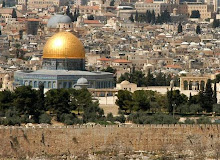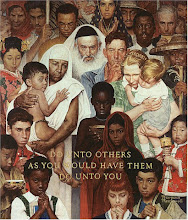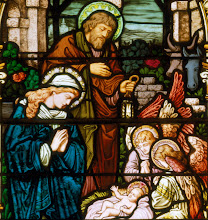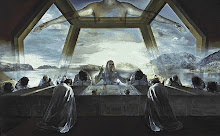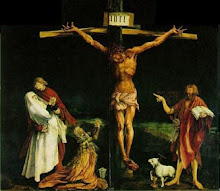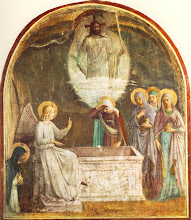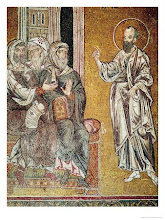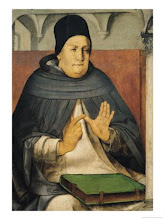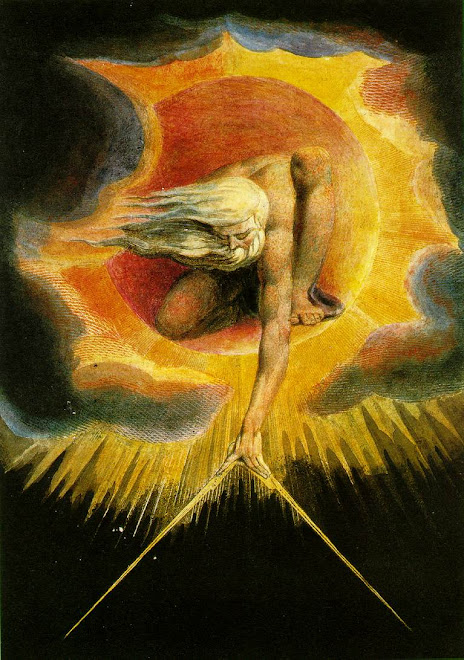Zoroastrianism is one of the world's oldest monotheistic religions It was founded by the prophet Zoroaster (or Zarathustra) in ancient Iran approximately 3500 years ago.
For 1000 years Zoroastrianism was one of the most powerful religions in the world. It was the official religion of Persia (Iran) from 600 BCE to 650 CE.
It is now one of the world's smallest religions with around a quarter of a million followers worldwide. There are 4000 Zoroastrians living in Britain.
Zoroastrians believe there is one God called Ahura Mazda (Wise Lord) and He created the world.
Zoroastrians are not fire-worshippers, as some Westerners wrongly believe. Zoroastrians believe that the elements are pure and that fire represents God's light or wisdom.
Ahura Mazda revealed the truth through the prophet, Zoroaster.
Zoroastrians traditionally pray several times a day.
Zoroastrians worship communally in a Fire Temple or Agiary.
The Zoroastrian book of Holy Scriptures is called The Avesta.
The Avesta can be roughly split into two main sections:
The Avesta is the oldest and core part of the scriptures, which contains the Gathas. The Gathas are seventeen hymns thought to be composed by Zoroaster himself.
The Younger Avesta - commentaries to the older Avestan written in later years. It also contains myths, stories and details of ritual observances.
Zoroastrians are roughly split into two groups:
The Iranians
The Parsis
The Science of Religion; The Religion of Science
Read this doc on Scribd: RICHARD DAWKINS - Religion of Science
Wednesday, October 24, 2007
Saturday, October 20, 2007
ISLAM
Islam is a monotheistic religion originating with the teachings of Muhammad, a 7th-century Arab religious and political figure. The word Islam means "submission", or the total surrender of oneself to God (Arabic: الله, Allāh). An adherent of Islam is known as a Muslim, meaning "one who submits (to God)".[1][2] There are between 1 billion to 1.3 billion Muslims on the basis of self-identification, making Islam the second-largest religion in the world, after Christianity.[3]
Muslims believe that God revealed the Qur'an to Muhammad, God's final prophet, and regard the Qur'an and the Sunnah (words and deeds of Muhammad) as the fundamental sources of Islam.[4] They do not regard Muhammad as the founder of a new religion, but as the restorer of the original monotheistic faith of Abraham, Moses, Jesus, and other prophets. Islamic tradition holds that Judaism and Christianity distorted the messages of these prophets over time either in interpretation, in text, or both.[5]
Islam includes many religious practices. Adherents are generally required to observe the Five Pillars of Islam, which are five duties that unite Muslims into a community.[6] In addition to the Five Pillars, Islamic law (sharia) has developed a tradition of rulings that touch on virtually all aspects of life and society. This tradition encompasses everything from practical matters like dietary laws and banking to warfare.[7]
Almost all Muslims belong to one of two major denominations, the Sunni and Shi'a. The schism developed in the late 7th century following disagreements over the religious and political leadership of the Muslim community. Roughly 85 percent of Muslims are Sunni and 15 percent are Shi'a. Islam is the predominant religion throughout the Middle East, as well as in parts of Africa and Asia. Large communities are also found in China, Western Europe, the Balkan Peninsula, and Russia. About 20 percent of Muslims live in Arab countries.[8]
Etymology and meaning
The word islām is derived from the Arabic verb aslama, which means to accept, surrender or submit. Thus, Islam means submission to and acceptance of God, and believers must demonstrate this by worshiping him, following his commands, and avoiding polytheism. The word is given a number of meanings in the Qur'an. In some verses (ayat), the quality of Islam as an internal conviction is stressed: "Whomsoever God desires to guide, He expands his breast to Islam."[9] Other verses connect islām and dīn (usually translated as "religion"): "Today, I have perfected your religion (dīn) for you; I have completed My blessing upon you; I have approved Islam for your religion."[10] Still others describe Islam as an action of returning to God—more than just a verbal affirmation of faith.[11]
Beliefs
According to the Qur'an all Muslims have to believe in God, his revelations, his angels, his messengers, and in the "Day of Judgment".[12] Also, there are other beliefs that differ between particular sects. The Sunni concept of predestination is called divine decree,[13] while the Shi'a version is called divine justice. Unique to the Shi'a is the doctrine of Imamah, or the political and spiritual leadership of the Imams.[14]
Muslims believe that God revealed his final message to humanity through the Islamic prophet Muhammad via the angel Gabriel. For them, Muhammad was God's final prophet and the Qur'an is the revelations he received over more than two decades.[15] In Islam, prophets are men selected by God to be his messengers. Muslims believe that prophets are human and not divine, though some are able to perform miracles to prove their claim. Islamic prophets are considered to be the closest to perfection of all humans, and are uniquely the recipients of divine revelation—either directly from God or through angels.[16] Islamic theology says that all of God's messengers since Adam preached the message of Islam—submission to the will of the one God. Islam is described in the Qur'an as "the primordial nature upon which God created mankind",[17] and the Qur'an states that the proper name Muslim was given by Abraham.[18]
As a historical phenomenon, Islam originated in Arabia in the early 7th century.[19] Islamic texts depict Judaism and Christianity as prophetic successor traditions to the teachings of Abraham. The Qur'an calls Jews and Christians "People of the Book" (ahl al-kitāb), and distinguishes them from polytheists. Muslims believe that parts of the previously revealed scriptures, the Tawrat (Torah) and the Injil (Gospels), had become distorted—either in interpretation, in text, or both.[5]
Allah
Islam's fundamental theological concept is tawhīd—the belief that there is only one God. The Arabic term for God is Allāh; most scholars believe it was derived from a contraction of the words al- (the) and ʾilāh (deity, masculine form), meaning "the God" (al-ilāh), but others trace its origin to the Aramaic Alāhā.[20] The first of the Five Pillars of Islam, tawhīd is expressed in the shahadah (testification), which declares that there is no god but God, and that Muhammad is God's messenger. In traditional Islamic theology, God is beyond all comprehension; Muslims are not expected to visualize God but to worship and adore him as a protector. Although Muslims believe that Jesus was a prophet, they reject the Christian doctrine of the Trinity, comparing it to polytheism. In Islamic theology, Jesus is just a man and not the son of God;[21] God is described in a chapter (sura) of the Qur'an as "…God, the One and Only; God, the Eternal, Absolute; He begetteth not, nor is He begotten; And there is none like unto Him."[22]
Qur'an
The first sura in a Qur'anic manuscript by Hattat Aziz EfendiMuslims consider the Qur'an to be the literal word of God; it is the central religious text of Islam.[23] Muslims believe that the verses of the Qur'an were revealed to Muhammad by God through the angel Gabriel on many occasions between the years 610 and his death on July 6, 632. The Qur'an was written down by Muhammad's companions (sahabah) while he was alive, although the prime method of transmission was orally. It was compiled in the time of Abu Bakr, the first caliph, and was standardized in the time of Uthman, the third caliph. From textual evidence, modern Western academics find that the Qur'an of today has not changed over the years.[24]
The Qur'an is divided into 114 suras, or chapters, which combined, contain 6,236 āyāt, or poetic verses. The chronologically earlier suras, revealed at Mecca, are primarily concerned with ethical and spiritual topics. The later Medinan suras mostly discuss social and moral issues relevant to the Muslim community.[25] The Qur'an is more concerned with moral guidance than legal instruction, and is considered the "sourcebook of Islamic principles and values".[26] Muslim jurists consult the hadith, or the written record of Muhammad's life, to both supplement the Qur'an and assist with its interpretation. The science of Qur'anic commentary and exegesis is known as tafsir.[27]
The word Qur'an means "recitation". When Muslims speak in the abstract about "the Qur'an", they usually mean the scripture as recited in Arabic rather than the printed work or any translation of it. To Muslims, the Qur'an is perfect only as revealed in the original Arabic; translations are necessarily deficient because of language differences, the fallibility of translators, and the impossibility of preserving the original's inspired style. Translations are therefore regarded only as commentaries on the Qur'an, or "interpretations of its meaning", not as the Qur'an itself.[28]
Angels
Belief in angels is crucial to the faith of Islam. The Arabic word for Angels (malak) means "messenger", like its counterparts in Hebrew (malakh) and Greek (angelos). According to the Qur'an, angels do not possess free will, and worship God in perfect obedience.[29] Angels' duties include communicating revelations from God, glorifying God, recording every person's actions, and taking a person's soul at the time of death. They are also thought to intercede on man's behalf. The Qur'an describes angels as "messengers with wings—two, or three, or four (pairs): He [God] adds to Creation as He pleases…"[30]
Muhammad
Muhammad (c. 570 – July 6, 632) was an Arab religious, political, and military leader who founded the religion of Islam as a historical phenomenon. Muslims view him not as the creator of a new religion, but as the restorer of the original, uncorrupted monotheistic faith of Adam, Abraham and others. In Muslim tradition, Muhammad is viewed as the last and the greatest in a series of prophets—as the man closest to perfection, the possessor of all virtues.[31] For the last 23 years of his life, beginning at age 40, Muhammad reported receiving revelations from God. The content of these revelations, known as the Qur'an, was memorized and recorded by his companions.[32]
The Masjid al-Nabawi ("Mosque of the Prophet") in Medina is the site of Muhammad's tomb.During this time, Muhammad preached to the people of Mecca, imploring them to abandon polytheism. Although some converted to Islam, Muhammad and his followers were persecuted by the leading Meccan authorities. After 13 years of preaching, Muhammad and the Muslims performed the Hijra ("emigration") to the city of Medina (formerly known as Yathrib) in 622. There, with the Medinan converts (Ansar) and the Meccan migrants (Muhajirun), Muhammad established his political and religious authority. Within years, two battles had been fought against Meccan forces: the Battle of Badr in 624, which was a Muslim victory, and the Battle of Uhud in 625, which ended inconclusively. Conflict with Medinan Jewish clans who opposed the Muslims led to their exile, enslavement or death, and the Jewish enclave of Khaybar was subdued. At the same time, Meccan trade routes were cut off as Muhammad brought surrounding desert tribes under his control.[33] By 629 Muhammad was victorious in the nearly bloodless Conquest of Mecca, and by the time of his death in 632 he ruled over the Arabian peninsula.[34]
In Islam, the "normative" example of Muhammad's life is called the Sunnah (literally "trodden path"). This example is preserved in traditions known as hadith ("reports"), which recount his words, his actions, and his personal characteristics. The classical Muslim jurist ash-Shafi'i (d. 820) established the importance of the Sunnah in Islamic law, and Muslims were encouraged to emulate Muhammad's actions in their daily lives. The Sunnah is seen as crucial to guiding interpretation of the Qur'an.[35]
Resurrection and judgment
Belief in the "Day of Resurrection", yawm al-Qiyāmah (also known as yawm ad-dīn, "Day of Judgment" and as-sā`a, "the Last Hour") is also crucial for Muslims. They believe that the time of Qiyāmah is preordained by God but unknown to man. The trials and tribulations preceding and during the Qiyāmah are described in the Qur'an and the hadith, and also in the commentaries of Islamic scholars. The Qur'an emphasizes bodily resurrection, a break from the pre-Islamic Arabian understanding of death. It states that resurrection will be followed by the gathering of mankind, culminating in their judgment by God.[36]
The Qur'an lists several sins that can condemn a person to hell, such as disbelief, usury and dishonesty. Muslims view paradise (jannah) as a place of joy and bliss, with Qur'anic references describing its features and the physical pleasures to come. There are also references to a greater joy—acceptance by God (ridwān).[37] Mystical traditions in Islam place these heavenly delights in the context of an ecstatic awareness of God.[38]
Predestination
In accordance with the Islamic belief in predestination, or divine preordainment (al-qadā wa'l-qadar), God has full knowledge and control over all that occurs. This is explained in Qur'anic verses such as "Say: 'Nothing will happen to us except what Allah has decreed for us: He is our protector'…"[39] For Muslims, everything in the world that occurs, good or evil, has been preordained and nothing can happen unless permitted by God. In Islamic theology, divine preordainment does not suggest an absence of God's indignation against evil, because any evils that do occur are thought to result in future benefits men may not be able to see. According to Muslim theologians, although events are pre-ordained, man possesses free will in that he has the faculty to choose between right and wrong, and is thus responsible for his actions. According to Islamic tradition, all that has been decreed by God is written in al-Lawh al-Mahfūz, the "Preserved Tablet".[40]
The Shi'a understanding of predestination is called "divine justice" (Adalah). This doctrine, originally developed by the Mu'tazila, stresses the importance of man's responsibility for his own actions. In contrast, the Sunni deemphasize the role of individual free will in the context of God's creation and foreknowledge of all things.[41]
Duties and practices
Five Pillars
Rituals of the Hajj (pilgrimage) include walking seven times around the Kaaba in Mecca.The Five Pillars of Islam (Arabic: : اركان الدين) are five practices essential to Sunni Islam. Shi'a Muslims subscribe to eight ritual practices which substantially overlap with the Five Pillars.[42] They are:
The shahadah, which is the basic creed or tenet of Islam: "'ašhadu 'al-lā ilāha illā-llāhu wa 'ašhadu 'anna muħammadan rasūlu-llāh", or "I testify that there is none worthy of worship except God and I testify that Muhammad is the Messenger of God." This testament is a foundation for all other beliefs and practices in Islam (although technically the Shi'a do not consider the shahadah to be a separate pillar, just a belief). Muslims must repeat the shahadah in prayer, and non-Muslims wishing to convert to Islam are required to recite the creed.[43]
Salah, or ritual prayer, which must be performed five times a day. (However, the Shi'a are permitted to run together the noon with the afternoon prayers, and the evening with the night prayers). Each salah is done facing towards the Kaaba in Mecca. Salah is intended to focus the mind on God, and is seen as a personal communication with him that expresses gratitude and worship. Salah is compulsory but flexibility in the specifics is allowed depending on circumstances. In many Muslim countries, reminders called Adhan (call to prayer) are broadcast publicly from local mosques at the appropriate times. The prayers are recited in the Arabic language, and consist of verses from the Qur'an.[44]
Zakat, or alms-giving. This is the practice of giving based on accumulated wealth, and is obligatory for all Muslims who can afford it. A fixed portion is spent to help the poor or needy, and also to assist the spread of Islam. The zakat is considered a religious obligation (as opposed to voluntary charity) that the well-off owe to the needy because their wealth is seen as a "trust from God's bounty". The Qur'an and the hadith also suggest a Muslim give even more as an act of voluntary alms-giving (sadaqah). Many Shi'ites are expected to pay an additional amount in the form of a khums tax, which they consider to be a separate ritual practice.[45]
Sawm, or fasting during the month of Ramadan. Muslims must not eat or drink (among other things) from dawn to dusk during this month, and must be mindful of other sins. The fast is to encourage a feeling of nearness to God, and during it Muslims should express their gratitude for and dependence on him, atone for their past sins, and think of the needy. Sawm is not obligatory for several groups for whom it would constitute an undue burden. For others, flexibility is allowed depending on circumstances, but missed fasts usually must be made up quickly.[46]
The Hajj, which is the pilgrimage during the Islamic month of Dhu al-Hijjah in the city of Mecca. Every able-bodied Muslim who can afford it must make the pilgrimage to Mecca at least once in his or her lifetime. When the pilgrim is about ten kilometers from Mecca, he must dress in Ihram clothing, which consists of two white seamless sheets. Rituals of the Hajj include walking seven times around the Kaaba, touching the Black Stone, running seven times between Mount Safa and Mount Marwah, and symbolically stoning the Devil in Mina. The pilgrim, or the hajji, is honored in his or her community, although Islamic teachers say that the Hajj should be an expression of devotion to God instead of a means to gain social standing.[47]
In addition to the khums tax, Shi'a Muslims consider three additional practices essential to the religion of Islam. The first is jihad, which is also important to the Sunni, but not considered a pillar. The second is Amr-Bil-Ma'rūf, the "Enjoining to Do Good", which calls for every Muslim to live a virtuous life and to encourage others to do the same. The third is Nahi-Anil-Munkar, the "Exhortation to Desist from Evil", which tells Muslims to refrain from vice and from evil actions and to also encourage others to do the same.[48]
Law
The Sharia (literally: "the path leading to the watering place") is Islamic law formed by traditional Islamic scholarship. In Islam, Sharia is the expression of the divine will, and "constitutes a system of duties that are incumbent upon a Muslim by virtue of his religious belief".[49]
Islamic law covers all aspects of life, from matters of state, like governance and foreign relations, to issues of daily living. The Qur'an defines hudud as the punishments for five specific crimes: unlawful intercourse, false accusation of unlawful intercourse, consumption of alcohol, theft, and highway robbery. The Qur'an and Sunnah also contain laws of inheritance, marriage, and restitution for injuries and murder, as well as rules for fasting, charity, and prayer. However, these prescriptions and prohibitions may be broad, so their application in practice varies. Islamic scholars (known as ulema) have elaborated systems of law on the basis of these rules and their interpretations.[50]
Fiqh, or "jurisprudence", is defined as the knowledge of the practical rules of the religion. The method Islamic jurists use to derive rulings is known as usul al-fiqh ("legal theory", or "principles of jurisprudence"). According to Islamic legal theory, law has four fundamental roots, which are given precedence in this order: the Qur'an, the Sunnah (actions and sayings of Muhammad), the consensus of the Muslim jurists (ijma), and analogical reasoning (qiyas). For early Islamic jurists, theory was less important than pragmatic application of the law. In the 9th century, the jurist ash-Shafi'i provided a theoretical basis for Islamic law by codifying the principles of jurisprudence (including the four fundamental roots) in his book ar-Risālah.[51]
Religion and state
Islamic law does not distinguish between "matters of church" and "matters of state"; the ulema function as both jurists and theologians. In practice, Islamic rulers frequently bypassed the Sharia courts with a parallel system of so-called "Grievance courts" over which they had sole control. As the Muslim world came into contact with Western secular ideals, Muslim societies responded in different ways. Turkey has been governed as a secular state ever since the reforms of Mustafa Kemal Atatürk. In contrast, the 1979 Iranian Revolution replaced a mostly secular regime with an Islamic republic led by the Ayatollah Ruholla Khomeini.[52]
Etiquette and diet
Many practices fall in the category of adab, or Islamic etiquette. This includes greeting others with "as-salamu `alaykum" ("peace be unto you"), saying bismillah ("in the name of God") before meals, and using only the right hand for eating and drinking. Islamic hygienic practices mainly fall into the category of personal cleanliness and health, such as the circumcision of male offspring. Islamic burial rituals include saying the Salat al-Janazah ("funeral prayer") over the bathed and enshrouded dead body, and burying it in a grave. Muslims, like Jews, are restricted in their diet, and prohibited foods include pig products, blood, carrion, and alcohol. All meat must come from a herbivorous animal slaughtered in the name of God by a Muslim, Jew, or Christian, with the exception of game that one has hunted or fished for oneself. Food permissible for Muslims is known as halal food.[53]
Jihad
Jihad means "to strive or struggle," especially in the idiomatic expression "striving in the way of God (al-jihad fi sabil Allah) and is considered the "sixth pillar of Islam" by a minority of Muslim authorities.[54] Jihad, in its broadest sense, is classically defined as "exerting one's utmost power, efforts, endeavors, or ability in contending with an object of disapprobation." Depending on the object being a visible enemy, the devil, and aspects of one's own self, different categories of Jihad are defined: Jihad against one's own self (self-perfection), Jihad of the tongue, Jihad of the hand, and Jihad of the sword. Jihad however when used without any qualifier is understood in its military aspect. [55][56]
Jihad is the only form of warfare permissible under Islamic law. Under most circumstances and for most Muslims, jihad is a collective duty (fard kifaya): one whose performance by some individuals exempts the others; for the rest of the populace, this happens only in the case of a general mobilization.[57] Some Muslim authorities, especially among the Shi'a and Sufis, distinguish between the "greater jihad", which pertains to spiritual self-perfection, and the "lesser jihad", defined as warfare.[58] Jihad also refers to one's striving to attain religious and moral perfection.[59]
History
Islam's historical development resulted in major political, economic, and military effects inside and outside the Islamic world. Within a century of Muhammad's first recitations of the Qur'an, an Islamic empire stretched from the Atlantic Ocean in the west to Central Asia in the east. This new polity soon broke into civil war, and successor states fought each other and outside forces. However, Islam continued to spread into regions like Africa, the Indian subcontinent, and Southeast Asia. The Islamic civilization was one of the most advanced in the world during the Middle Ages, but was surpassed by Europe with the economic and military growth of the West. During the 18th and 19th centuries, Islamic dynasties such as the Ottomans and Mughals fell under the sway of European imperial powers. In the 20th century new religious and political movements and newfound wealth in the Islamic world led to both rebirth and conflict.[60]
Rise of empire (632–750)
Further information: Succession to Muhammad, Muslim conquests, and Muslim Empire
Muhammad began preaching Islam at Mecca before migrating to Medina, from where he united the tribes of Arabia into a singular Arab Muslim religious polity. With Muhammad's death in 632, disagreement broke out over who would succeed him as leader of the Muslim community. Umar ibn al-Khattab, a prominent companion of Muhammad, nominated Abu Bakr, who was Muhammad's intimate friend and collaborator. Others added their support and Abu Bakr was made the first caliph. This choice was disputed by some of Muhammad's companions, who held that Ali ibn Abi Talib, his cousin and son-in-law, had been designated his successor. Abu Bakr's immediate task was to avenge a recent defeat by Byzantine (or Eastern Roman Empire) forces, although he first had to put down a rebellion by Arab tribes in an episode known as the Ridda wars, or "Wars of Apostasy".[61]
The territory of the Caliphate in the year 750His death in 634 resulted in the succession of Umar as the caliph, followed by Uthman ibn al-Affan and Ali ibn Abi Talib. These four are known as al-khulafā' ar-rāshidūn ("Rightly Guided Caliphs"). Under them, the territory under Muslim rule expanded deeply into Persian Empire and Byzantine territories.[62] When Umar was assassinated in 644, the election of Uthman as successor was met with increasing opposition. In 656, Uthman was also killed, and Ali assumed the position of caliph. After fighting off opposition in the first civil war (the "First Fitna"), Ali was assassinated by Kharijites in 661. Following this, Mu'awiyah, who was governor of Levant, seized power and began the Umayyad dynasty.[63]
These disputes over religious and political leadership would give rise to schism in the Muslim community. The majority accepted the legitimacy of the three rulers prior to Ali, and became known as Sunnis. A minority disagreed, and believed that Ali was the only rightful successor; they became known as the Shi'a.[64] After Mu'awiyah's death in 680, conflict over succession broke out again in a civil war known as the "Second Fitna". Afterward, the Umayyad dynasty prevailed for seventy years, and was able to conquer the Maghrib as well as the Al-Andalus (the Iberian Peninsula, former Visigothic Hispania) and the Narbonnese Gaul. While the Muslim-Arab elite engaged in conquest, some devout Muslims began to question the piety of indulgence in a worldly life, emphasizing rather poverty, humility and avoidance of sin based on renunciation of bodily desires. Devout Muslim ascetic exemplars such as Hasan al-Basri would inspire a movement that would evolve into Sufism.[65]
For the Umayyad aristocracy, Islam was viewed as a religion for Arabs only;[66] the economy of the Umayyad empire was based on the assumption that a majority of non-Muslims (Dhimmis) would pay taxes to the minority of Muslim Arabs. A non-Arab who wanted to convert to Islam was supposed to first become a client of an Arab tribe. Even after conversion, these new Muslims (mawali) did not achieve social and economic equality with the Arabs. The descendants of Muhammad's uncle Abbas ibn Abd al-Muttalib rallied discontented mawali, poor Arabs, and some Shi'a against the Umayyads and overthrew them with the help of their propagandist and general Abu Muslim, inaugurating the Abbasid dynasty in 750.[67] Under the Abbasids, Islamic civilization flourished in the "Islamic Golden Age", with its capital at the cosmopolitan city of Baghdad.[68]
Golden Age (750–1258)
Artistic depiction of the Battle of Hattin in 1187, where Jerusalem was recaptured by Saladin's Ayyubid forcesBy the late 9th century, the Abbasid caliphate began to fracture as various regions gained increasing levels of autonomy. Across North Africa, Persia, and Central Asia emirates formed as provinces broke away. The monolithic Arab empire gave way to a more religiously homogenized Muslim world where the Shia Fatimids contested even the religious authority of the caliphate. By 1055 the Seljuq Turks had eliminated the Abbasids as a military power, nevertheless they continued to respect the caliph's titular authority.[69] During this time expansion of the Muslim world continued, by both conquest and peaceful proselytism even as both Islam and Muslim trade networks were extending into sub-Saharan West Africa, Inner Asia, Volga Bulgaria and the Malay archipelago.[1]
The Golden Age saw new legal, philosophical, and religious developments. The major hadith collections were compiled and the four modern Sunni Madh'habs were established. Islamic law was advanced greatly by the efforts of the early 9th century jurist al-Shafi'i; he codified a method to establish the reliability of hadith, a topic which had been a locus of dispute among Islamic scholars.[70] Philosophers Ibn Sina (Avicenna) and Al-Farabi sought to incorporate Greek principles into Islamic theology, while others like the 11th century theologian Abu Hamid al-Ghazzali argued against them and ultimately prevailed.[71] Finally, Sufism and Shi'ism both underwent major changes in the 9th century. Sufism became a full-fledged movement that had moved towards mysticism and away from its ascetic roots, while Shi'ism split due to disagreements over the succession of Imams.[72]
Starting in the 9th century, Muslim conquests in Christian Europe began to be reversed. The Reconquista was launched against Muslim principalities in Iberia, and Muslim Italian possessions were lost to the Normans. From the 11th Century onwards a series of wars known as the Crusades brought the Muslim world into conflict with Christendom. Successful at first in their capturing of the Holy land which resulted in the establishment of the Crusader states, Crusader gains in the Holy Land were reversed by later Muslim generals such as Saladin, who recaptured Jerusalem during the Second Crusade.[73] The Mongol Empire put an end to the Abbasid dynasty at the Battle of Baghdad in 1258, which saw the Muslims overrun by the superior Mongol army. Meanwhile in Egypt, the slave-soldier Mamluks took control in an uprising in 1250.[74]
Ottomans and Islamic empires in India (1258–1918)
The Seljuk Turks fell apart rapidly in the second half of the 13th century. In the 13th and 14th centuries the Ottoman empire (named after Osman I) was established with a string of conquests that included the Balkans, parts of Greece, and western Anatolia. In 1453 under Mehmed II the Ottomans laid siege to Constantinople, the capital of Byzantium. The Byzantine fortress succumbed shortly thereafter, having been battered by superior Ottoman cannonry.[75]
Beginning in the 13th century, Sufism underwent a transformation, largely as a result of the efforts of al-Ghazzali to legitimize and reorganize the movement. He developed the model of the Sufi order—a community of spiritual teachers and students.[76] Also of importance to Sufism was the creation of the Masnavi, a collection of mystical poetry by the 13th century Persian poet Rumi. The Masnavi had a profound influence on the development of Sufi religious thought; to many Sufis it is second in importance only to the Qur'an.[77]
The Taj Mahal is a mausoleum located in Agra, India, that was built under Mughal[78]In the early 16th century, the Shi'ite Safavid dynasty assumed control in Persia and established Shi'a Islam as an official religion there, and despite periodic setbacks, the Safavids remained powerful for two centuries. Meanwhile, Mamluk Egypt fell to the Ottomans in 1517, who then launched a European campaign which reached as far as the gates of Vienna in 1529.[79] Many Islamic dynasties ruled parts of the Indian subcontinent starting from the twelfth century. The prominent ones include the Delhi Sultanate (1206–1526) and the Mughal empire (1526–1857). These empires helped in the spread of Islam in South Asia. but by the mid-18th century the British empire had ended the Mughal dynasty.[80] In the 18th century the Wahhabi movement took hold in Saudi Arabia. Founded by the preacher Ibn Abd al-Wahhab, Wahhabism is a fundamentalist ideology that condemns practices like Sufism and the veneration of saints as un-Islamic.[81]
By the 17th and 18th centuries, despite attempts at modernization, the Ottoman empire had begun to feel threatened by European economic and military advantages. In the 19th century, the rise of nationalism resulted in Greece declaring and winning independence in 1829, with several Balkan states following suit after the Ottomans suffered defeat in the Russo-Turkish War of 1877–1878. The Ottoman era came to a close at the end of World War I.[82]
Modern times (1918–present)
After World War I losses, the remnants of the empire were parceled out as European protectorates or spheres of influence. Since then most Muslim societies have become independent nations, and new issues such as oil wealth and relations with the State of Israel have assumed prominence.[83]
The 20th century saw the creation of many new Islamic "revivalist" movements. Groups such as the Muslim Brotherhood in Egypt and Jamaat-e-Islami in Pakistan advocate a totalistic and theocratic alternative to secular political ideologies. Sometimes called Islamist, they see Western cultural values as a threat, and promote Islam as a comprehensive solution to every public and private question of importance. In countries like Iran and Afghanistan (under the Taliban), revolutionary movements replaced secular regimes with Islamist states. In contrast, Liberal Islam is a movement that attempts to reconcile religious tradition with modern norms of secular governance and human rights. Its supporters say that there are multiple ways to read Islam's sacred texts, and stress the need to leave room for "independent thought on religious matters".[84]
Community
Muslim percentage of population by country
Commonly cited estimates of the Muslim population in 2007, range from 900 million to 1.3 billion. Approximately 85% are Sunni and 15% are Shi'a, with a small minority belonging to other sects. Some 30–40 countries are Muslim-majority, and Arabs account for around 20% of all Muslims worldwide. South Asia and Southeast Asia contain the most populous Muslim countries, with Indonesia, India, Pakistan, and Bangladesh having more than 100 million adherents each.[85] According to U.S. government figures, in 2006 there were 20 million Muslims in China.[86] In the Middle East, the non-Arab countries of Turkey and Iran are the largest Muslim-majority countries; in Africa, Egypt and Nigeria have the most populous Muslim communities.[85] Islam is the second largest religion after Christianity in many European countries.[87]
Mosques
Eid prayers on the holiday of Eid al-Fitr at the Badshahi Mosque, Pakistan. The days of Eid are important occasions on the Islamic calendar.A mosque is a place of worship for Muslims, who often refer to it by its Arabic name, masjid. The word mosque in English refers to all types of buildings dedicated to Islamic worship, although there is a distinction in Arabic between the smaller, privately owned mosque and the larger, "collective" mosque (masjid jāmi`). Although the primary purpose of the mosque is to serve as a place of prayer, it is also important to the Muslim community as a place to meet and study. Modern mosques have evolved greatly from the early designs of the 7th century, and contain a variety of architectural elements such as minarets.[88]
Family life
The basic unit of Islamic society is the family, and Islam defines the obligations and legal rights of family members. The father is seen as financially responsible for his family, and is obliged to cater for their well-being. The division of inheritance is specified in the Qur'an, which states that most of it is to pass to the immediate family, while a portion is set aside for the payment of debts and the making of bequests. The woman's share of inheritance is generally half of that of a man with the same rights of succession.[89] Marriage in Islam is a civil contract which consists of an offer and acceptance between two qualified parties in the presence of two witnesses. The groom is required to pay a dowry (mahr) to the bride, as stipulated in the contract.[90]
A man may marry up to four wives if he believes he can treat them equally, while a woman may marry one man only. In most Muslim countries, the process of divorce in Islam is known as talaq, which the husband initiates by pronouncing the word "divorce".[91] Scholars disagree whether Islamic holy texts justify traditional Islamic practices such as veiling and seclusion (purdah). Starting in the 20th century, Muslim social reformers argued against these restrictions and other practices such as polygamy, with varying success. At the same time, many Muslim women have attempted to reconcile tradition with modernity by combining an active life with outward modesty. Islamist groups and regimes like the Taliban mostly seek to continue traditional law as applied to women.[92]
Calendar
The formal beginning of the Muslim era was chosen to be the Hijra in 622CE, which was an important turning point in Muhammad's fortunes. The assignment of this year as the year 1 AH (Anno Hegirae) in the Islamic calendar was reportedly made by Caliph Umar. It is a lunar calendar, with nineteen ordinary years of 354 days and eleven leap years of 355 days in a thirty-year cycle. Islamic dates cannot be converted to CE/AD dates simply by adding 622 years: allowance must also be made for the fact that each Hijri century corresponds to only 97 years in the Christian calendar.[93] The year 1428AH coincides almost completely with 2007CE.
Islamic holy days fall on fixed dates of the lunar calendar, which means that they occur in different seasons in different years in the Gregorian calendar. The most important Islamic festivals are Eid al-Fitr (Arabic: عيد الفطر) on the 1st of Shawwal, marking the end of the fasting month Ramadan, and Eid al-Adha (Arabic: عيد الأضحى) on the 10th of Dhu al-Hijjah, coinciding with the pilgrimage to Mecca.[94]
Other religions
A view of the Dome of the Rock on the Temple Mount in Jerusalem, a holy site in both Islam and Judaism that has been a source of controversy
The Al-Aqsa Mosque congregation building. Muslims believe that Muhammad ascended to heaven on this site.According to Islamic doctrine, Islam was the primordial religion of mankind, professed by Adam.[95] At some point, a religious split occurred, and God began sending prophets to bring his revelations to the people.[96] In this view, Abraham, Moses, Hebrew prophets, and Jesus were all prophets of Islam, but their message and the texts of the Torah and the Gospels were corrupted by Jews and Christians. Similarly, children of non-Muslim families are born Muslims, but are converted to another faith by their parents.[97] The idea of Islamic supremacy is encapsulated in the formula "Islam is exalted and nothing is exalted above it."[98] Pursuant to this principle, Muslim women may not marry non-Muslim men, defamation of Islam is prohibited, and the testimony of a non-Muslim is inadmissible against a Muslim.[99]
Islamic law divides non-Muslims into several categories, depending on their relation with the Islamic state. Christians and Jews who live under Islamic rule are known as dhimmis. Dhimmis must pay tribute (jizya) to the Islamic state, and as such are considered "protected peoples." Historically, dhimmis enjoyed a measure of communal autonomy under their own religious leaders, but were subject to legal, social and religious restrictions as well as humiliating regulations meant to highlight the inferiority of non-Muslim subjects.[100] The status was extended to Zoroastrians and sometimes to polytheists (such as Hindus), but not to atheists or agnostics.[101] Those who live in non-Muslim lands (dar al-harb) are known as harbis, and upon entering into an alliance with the Muslim state become known as ahl al-ahd. Those who receive a guarantee of safety while residing temporarily in Muslim lands are known as ahl al-amān. Their legal position is similar to that of the dhimmi except that they are not required to pay the jizya. The people of armistice (ahl al-hudna) are those who live outside of Muslim territory and agree to refrain from attacking the Muslims.[102][103] Apostasy is prohibited, and is punishable by death.[104][105]
Denominations
Islam consists of a number of religious denominations that are essentially similar in belief but which have significant theological and legal differences. The primary division is between the Sunni and the Shi'a, with Sufism generally considered to be a mystical inflection of Islam rather than a distinct school. According to most sources, approximately 85% of the world's Muslims are Sunni and approximately 15% are Shi'a, with a small minority who are members of other Islamic sects.[106]
Sunni
Divisions of IslamSunni Muslims are the largest group in Islam. In Arabic, as-Sunnah literally means "principle" or "path". The Sunnah (the example of Muhammad's life) as recorded in the Qur'an and the hadith is the main pillar of Sunni doctrine. Sunnis believe that the first four caliphs were the rightful successors to Muhammad; since God did not specify any particular leaders to succeed him, those leaders had to be elected. Sunnis recognize four major legal traditions, or madhhabs: Hanafi, Maliki, Shafi'i and Hanbali. All four accept the validity of the others and a Muslim might choose any one that he or she finds agreeable, but other Islamic sects are believed to have departed from the majority by introducing innovations (bidah). There are also several orthodox theological or philosophical traditions within Sunnism. For example, the recent Salafi movement sees itself as restorationist and claims to derive its teachings from the original sources of Islam.[107]
Shi'a
See also: Historic background of the Sunni-Shi'a split
The Shi'a, who constitute the second-largest branch of Islam, believe in the political and religious leadership of infallible Imams from the progeny of Ali ibn Abi Talib. They believe that he, as the cousin and son-in-law of Muhammad, was his rightful successor, and they call him the first Imam (leader), rejecting the legitimacy of the previous Muslim caliphs. To them, an Imam rules by right of divine appointment and holds "absolute spiritual authority" among Muslims, having final say in matters of doctrine and revelation.[108][109] Although the Shi'a share many core practices with the Sunni, the two branches disagree over the proper importance and validity of specific collections of hadith. The Shi'a follow a legal tradition called Ja'fari jurisprudence.[110] Shi'a Islam has several branches, the largest of which is the Twelvers (iṯnāʿašariyya), while the others are the Ismaili, the Seveners, and the Zaidiyyah.[111]
Sufism
Not strictly a denomination, Sufism is a mystical-ascetic form of Islam. By focusing on the more spiritual aspects of religion, Sufis strive to obtain direct experience of God by making use of "intuitive and emotional faculties" that one must be trained to use.[112] Sufism and Islamic law are usually considered to be complementary, although Sufism has been criticized by some Muslims for being an unjustified religious innovation. Most Sufi orders, or tariqas, can be classified as either Sunni or Shi'a.[113]
Others
The Kharijites are a sect that dates back to the early days of Islam. The only surviving branch of the Kharijites is Ibadism. Unlike most Kharijite groups, Ibadism does not regard sinful Muslims as unbelievers. The Imamate is an important topic in Ibadi legal literature, which stipulates that the leader should be chosen solely on the basis of his knowledge and piety, and is to be deposed if he acts unjustly. Most Ibadi Muslims live in Oman.[114]
The Yazidi, Druze, Ahmadiyya, Bábí, Bahá'í, Berghouata and Ha-Mim religions either emerged out of Islam or came to share certain beliefs with Islam. Sikhism, founded by Guru Nanak in late fifteenth century Punjab, incorporates aspects of both Islam and Hinduism.[115]
Muslims believe that God revealed the Qur'an to Muhammad, God's final prophet, and regard the Qur'an and the Sunnah (words and deeds of Muhammad) as the fundamental sources of Islam.[4] They do not regard Muhammad as the founder of a new religion, but as the restorer of the original monotheistic faith of Abraham, Moses, Jesus, and other prophets. Islamic tradition holds that Judaism and Christianity distorted the messages of these prophets over time either in interpretation, in text, or both.[5]
Islam includes many religious practices. Adherents are generally required to observe the Five Pillars of Islam, which are five duties that unite Muslims into a community.[6] In addition to the Five Pillars, Islamic law (sharia) has developed a tradition of rulings that touch on virtually all aspects of life and society. This tradition encompasses everything from practical matters like dietary laws and banking to warfare.[7]
Almost all Muslims belong to one of two major denominations, the Sunni and Shi'a. The schism developed in the late 7th century following disagreements over the religious and political leadership of the Muslim community. Roughly 85 percent of Muslims are Sunni and 15 percent are Shi'a. Islam is the predominant religion throughout the Middle East, as well as in parts of Africa and Asia. Large communities are also found in China, Western Europe, the Balkan Peninsula, and Russia. About 20 percent of Muslims live in Arab countries.[8]
Etymology and meaning
The word islām is derived from the Arabic verb aslama, which means to accept, surrender or submit. Thus, Islam means submission to and acceptance of God, and believers must demonstrate this by worshiping him, following his commands, and avoiding polytheism. The word is given a number of meanings in the Qur'an. In some verses (ayat), the quality of Islam as an internal conviction is stressed: "Whomsoever God desires to guide, He expands his breast to Islam."[9] Other verses connect islām and dīn (usually translated as "religion"): "Today, I have perfected your religion (dīn) for you; I have completed My blessing upon you; I have approved Islam for your religion."[10] Still others describe Islam as an action of returning to God—more than just a verbal affirmation of faith.[11]
Beliefs
According to the Qur'an all Muslims have to believe in God, his revelations, his angels, his messengers, and in the "Day of Judgment".[12] Also, there are other beliefs that differ between particular sects. The Sunni concept of predestination is called divine decree,[13] while the Shi'a version is called divine justice. Unique to the Shi'a is the doctrine of Imamah, or the political and spiritual leadership of the Imams.[14]
Muslims believe that God revealed his final message to humanity through the Islamic prophet Muhammad via the angel Gabriel. For them, Muhammad was God's final prophet and the Qur'an is the revelations he received over more than two decades.[15] In Islam, prophets are men selected by God to be his messengers. Muslims believe that prophets are human and not divine, though some are able to perform miracles to prove their claim. Islamic prophets are considered to be the closest to perfection of all humans, and are uniquely the recipients of divine revelation—either directly from God or through angels.[16] Islamic theology says that all of God's messengers since Adam preached the message of Islam—submission to the will of the one God. Islam is described in the Qur'an as "the primordial nature upon which God created mankind",[17] and the Qur'an states that the proper name Muslim was given by Abraham.[18]
As a historical phenomenon, Islam originated in Arabia in the early 7th century.[19] Islamic texts depict Judaism and Christianity as prophetic successor traditions to the teachings of Abraham. The Qur'an calls Jews and Christians "People of the Book" (ahl al-kitāb), and distinguishes them from polytheists. Muslims believe that parts of the previously revealed scriptures, the Tawrat (Torah) and the Injil (Gospels), had become distorted—either in interpretation, in text, or both.[5]
Allah
Islam's fundamental theological concept is tawhīd—the belief that there is only one God. The Arabic term for God is Allāh; most scholars believe it was derived from a contraction of the words al- (the) and ʾilāh (deity, masculine form), meaning "the God" (al-ilāh), but others trace its origin to the Aramaic Alāhā.[20] The first of the Five Pillars of Islam, tawhīd is expressed in the shahadah (testification), which declares that there is no god but God, and that Muhammad is God's messenger. In traditional Islamic theology, God is beyond all comprehension; Muslims are not expected to visualize God but to worship and adore him as a protector. Although Muslims believe that Jesus was a prophet, they reject the Christian doctrine of the Trinity, comparing it to polytheism. In Islamic theology, Jesus is just a man and not the son of God;[21] God is described in a chapter (sura) of the Qur'an as "…God, the One and Only; God, the Eternal, Absolute; He begetteth not, nor is He begotten; And there is none like unto Him."[22]
Qur'an
The first sura in a Qur'anic manuscript by Hattat Aziz EfendiMuslims consider the Qur'an to be the literal word of God; it is the central religious text of Islam.[23] Muslims believe that the verses of the Qur'an were revealed to Muhammad by God through the angel Gabriel on many occasions between the years 610 and his death on July 6, 632. The Qur'an was written down by Muhammad's companions (sahabah) while he was alive, although the prime method of transmission was orally. It was compiled in the time of Abu Bakr, the first caliph, and was standardized in the time of Uthman, the third caliph. From textual evidence, modern Western academics find that the Qur'an of today has not changed over the years.[24]
The Qur'an is divided into 114 suras, or chapters, which combined, contain 6,236 āyāt, or poetic verses. The chronologically earlier suras, revealed at Mecca, are primarily concerned with ethical and spiritual topics. The later Medinan suras mostly discuss social and moral issues relevant to the Muslim community.[25] The Qur'an is more concerned with moral guidance than legal instruction, and is considered the "sourcebook of Islamic principles and values".[26] Muslim jurists consult the hadith, or the written record of Muhammad's life, to both supplement the Qur'an and assist with its interpretation. The science of Qur'anic commentary and exegesis is known as tafsir.[27]
The word Qur'an means "recitation". When Muslims speak in the abstract about "the Qur'an", they usually mean the scripture as recited in Arabic rather than the printed work or any translation of it. To Muslims, the Qur'an is perfect only as revealed in the original Arabic; translations are necessarily deficient because of language differences, the fallibility of translators, and the impossibility of preserving the original's inspired style. Translations are therefore regarded only as commentaries on the Qur'an, or "interpretations of its meaning", not as the Qur'an itself.[28]
Angels
Belief in angels is crucial to the faith of Islam. The Arabic word for Angels (malak) means "messenger", like its counterparts in Hebrew (malakh) and Greek (angelos). According to the Qur'an, angels do not possess free will, and worship God in perfect obedience.[29] Angels' duties include communicating revelations from God, glorifying God, recording every person's actions, and taking a person's soul at the time of death. They are also thought to intercede on man's behalf. The Qur'an describes angels as "messengers with wings—two, or three, or four (pairs): He [God] adds to Creation as He pleases…"[30]
Muhammad
Muhammad (c. 570 – July 6, 632) was an Arab religious, political, and military leader who founded the religion of Islam as a historical phenomenon. Muslims view him not as the creator of a new religion, but as the restorer of the original, uncorrupted monotheistic faith of Adam, Abraham and others. In Muslim tradition, Muhammad is viewed as the last and the greatest in a series of prophets—as the man closest to perfection, the possessor of all virtues.[31] For the last 23 years of his life, beginning at age 40, Muhammad reported receiving revelations from God. The content of these revelations, known as the Qur'an, was memorized and recorded by his companions.[32]
The Masjid al-Nabawi ("Mosque of the Prophet") in Medina is the site of Muhammad's tomb.During this time, Muhammad preached to the people of Mecca, imploring them to abandon polytheism. Although some converted to Islam, Muhammad and his followers were persecuted by the leading Meccan authorities. After 13 years of preaching, Muhammad and the Muslims performed the Hijra ("emigration") to the city of Medina (formerly known as Yathrib) in 622. There, with the Medinan converts (Ansar) and the Meccan migrants (Muhajirun), Muhammad established his political and religious authority. Within years, two battles had been fought against Meccan forces: the Battle of Badr in 624, which was a Muslim victory, and the Battle of Uhud in 625, which ended inconclusively. Conflict with Medinan Jewish clans who opposed the Muslims led to their exile, enslavement or death, and the Jewish enclave of Khaybar was subdued. At the same time, Meccan trade routes were cut off as Muhammad brought surrounding desert tribes under his control.[33] By 629 Muhammad was victorious in the nearly bloodless Conquest of Mecca, and by the time of his death in 632 he ruled over the Arabian peninsula.[34]
In Islam, the "normative" example of Muhammad's life is called the Sunnah (literally "trodden path"). This example is preserved in traditions known as hadith ("reports"), which recount his words, his actions, and his personal characteristics. The classical Muslim jurist ash-Shafi'i (d. 820) established the importance of the Sunnah in Islamic law, and Muslims were encouraged to emulate Muhammad's actions in their daily lives. The Sunnah is seen as crucial to guiding interpretation of the Qur'an.[35]
Resurrection and judgment
Belief in the "Day of Resurrection", yawm al-Qiyāmah (also known as yawm ad-dīn, "Day of Judgment" and as-sā`a, "the Last Hour") is also crucial for Muslims. They believe that the time of Qiyāmah is preordained by God but unknown to man. The trials and tribulations preceding and during the Qiyāmah are described in the Qur'an and the hadith, and also in the commentaries of Islamic scholars. The Qur'an emphasizes bodily resurrection, a break from the pre-Islamic Arabian understanding of death. It states that resurrection will be followed by the gathering of mankind, culminating in their judgment by God.[36]
The Qur'an lists several sins that can condemn a person to hell, such as disbelief, usury and dishonesty. Muslims view paradise (jannah) as a place of joy and bliss, with Qur'anic references describing its features and the physical pleasures to come. There are also references to a greater joy—acceptance by God (ridwān).[37] Mystical traditions in Islam place these heavenly delights in the context of an ecstatic awareness of God.[38]
Predestination
In accordance with the Islamic belief in predestination, or divine preordainment (al-qadā wa'l-qadar), God has full knowledge and control over all that occurs. This is explained in Qur'anic verses such as "Say: 'Nothing will happen to us except what Allah has decreed for us: He is our protector'…"[39] For Muslims, everything in the world that occurs, good or evil, has been preordained and nothing can happen unless permitted by God. In Islamic theology, divine preordainment does not suggest an absence of God's indignation against evil, because any evils that do occur are thought to result in future benefits men may not be able to see. According to Muslim theologians, although events are pre-ordained, man possesses free will in that he has the faculty to choose between right and wrong, and is thus responsible for his actions. According to Islamic tradition, all that has been decreed by God is written in al-Lawh al-Mahfūz, the "Preserved Tablet".[40]
The Shi'a understanding of predestination is called "divine justice" (Adalah). This doctrine, originally developed by the Mu'tazila, stresses the importance of man's responsibility for his own actions. In contrast, the Sunni deemphasize the role of individual free will in the context of God's creation and foreknowledge of all things.[41]
Duties and practices
Five Pillars
Rituals of the Hajj (pilgrimage) include walking seven times around the Kaaba in Mecca.The Five Pillars of Islam (Arabic: : اركان الدين) are five practices essential to Sunni Islam. Shi'a Muslims subscribe to eight ritual practices which substantially overlap with the Five Pillars.[42] They are:
The shahadah, which is the basic creed or tenet of Islam: "'ašhadu 'al-lā ilāha illā-llāhu wa 'ašhadu 'anna muħammadan rasūlu-llāh", or "I testify that there is none worthy of worship except God and I testify that Muhammad is the Messenger of God." This testament is a foundation for all other beliefs and practices in Islam (although technically the Shi'a do not consider the shahadah to be a separate pillar, just a belief). Muslims must repeat the shahadah in prayer, and non-Muslims wishing to convert to Islam are required to recite the creed.[43]
Salah, or ritual prayer, which must be performed five times a day. (However, the Shi'a are permitted to run together the noon with the afternoon prayers, and the evening with the night prayers). Each salah is done facing towards the Kaaba in Mecca. Salah is intended to focus the mind on God, and is seen as a personal communication with him that expresses gratitude and worship. Salah is compulsory but flexibility in the specifics is allowed depending on circumstances. In many Muslim countries, reminders called Adhan (call to prayer) are broadcast publicly from local mosques at the appropriate times. The prayers are recited in the Arabic language, and consist of verses from the Qur'an.[44]
Zakat, or alms-giving. This is the practice of giving based on accumulated wealth, and is obligatory for all Muslims who can afford it. A fixed portion is spent to help the poor or needy, and also to assist the spread of Islam. The zakat is considered a religious obligation (as opposed to voluntary charity) that the well-off owe to the needy because their wealth is seen as a "trust from God's bounty". The Qur'an and the hadith also suggest a Muslim give even more as an act of voluntary alms-giving (sadaqah). Many Shi'ites are expected to pay an additional amount in the form of a khums tax, which they consider to be a separate ritual practice.[45]
Sawm, or fasting during the month of Ramadan. Muslims must not eat or drink (among other things) from dawn to dusk during this month, and must be mindful of other sins. The fast is to encourage a feeling of nearness to God, and during it Muslims should express their gratitude for and dependence on him, atone for their past sins, and think of the needy. Sawm is not obligatory for several groups for whom it would constitute an undue burden. For others, flexibility is allowed depending on circumstances, but missed fasts usually must be made up quickly.[46]
The Hajj, which is the pilgrimage during the Islamic month of Dhu al-Hijjah in the city of Mecca. Every able-bodied Muslim who can afford it must make the pilgrimage to Mecca at least once in his or her lifetime. When the pilgrim is about ten kilometers from Mecca, he must dress in Ihram clothing, which consists of two white seamless sheets. Rituals of the Hajj include walking seven times around the Kaaba, touching the Black Stone, running seven times between Mount Safa and Mount Marwah, and symbolically stoning the Devil in Mina. The pilgrim, or the hajji, is honored in his or her community, although Islamic teachers say that the Hajj should be an expression of devotion to God instead of a means to gain social standing.[47]
In addition to the khums tax, Shi'a Muslims consider three additional practices essential to the religion of Islam. The first is jihad, which is also important to the Sunni, but not considered a pillar. The second is Amr-Bil-Ma'rūf, the "Enjoining to Do Good", which calls for every Muslim to live a virtuous life and to encourage others to do the same. The third is Nahi-Anil-Munkar, the "Exhortation to Desist from Evil", which tells Muslims to refrain from vice and from evil actions and to also encourage others to do the same.[48]
Law
The Sharia (literally: "the path leading to the watering place") is Islamic law formed by traditional Islamic scholarship. In Islam, Sharia is the expression of the divine will, and "constitutes a system of duties that are incumbent upon a Muslim by virtue of his religious belief".[49]
Islamic law covers all aspects of life, from matters of state, like governance and foreign relations, to issues of daily living. The Qur'an defines hudud as the punishments for five specific crimes: unlawful intercourse, false accusation of unlawful intercourse, consumption of alcohol, theft, and highway robbery. The Qur'an and Sunnah also contain laws of inheritance, marriage, and restitution for injuries and murder, as well as rules for fasting, charity, and prayer. However, these prescriptions and prohibitions may be broad, so their application in practice varies. Islamic scholars (known as ulema) have elaborated systems of law on the basis of these rules and their interpretations.[50]
Fiqh, or "jurisprudence", is defined as the knowledge of the practical rules of the religion. The method Islamic jurists use to derive rulings is known as usul al-fiqh ("legal theory", or "principles of jurisprudence"). According to Islamic legal theory, law has four fundamental roots, which are given precedence in this order: the Qur'an, the Sunnah (actions and sayings of Muhammad), the consensus of the Muslim jurists (ijma), and analogical reasoning (qiyas). For early Islamic jurists, theory was less important than pragmatic application of the law. In the 9th century, the jurist ash-Shafi'i provided a theoretical basis for Islamic law by codifying the principles of jurisprudence (including the four fundamental roots) in his book ar-Risālah.[51]
Religion and state
Islamic law does not distinguish between "matters of church" and "matters of state"; the ulema function as both jurists and theologians. In practice, Islamic rulers frequently bypassed the Sharia courts with a parallel system of so-called "Grievance courts" over which they had sole control. As the Muslim world came into contact with Western secular ideals, Muslim societies responded in different ways. Turkey has been governed as a secular state ever since the reforms of Mustafa Kemal Atatürk. In contrast, the 1979 Iranian Revolution replaced a mostly secular regime with an Islamic republic led by the Ayatollah Ruholla Khomeini.[52]
Etiquette and diet
Many practices fall in the category of adab, or Islamic etiquette. This includes greeting others with "as-salamu `alaykum" ("peace be unto you"), saying bismillah ("in the name of God") before meals, and using only the right hand for eating and drinking. Islamic hygienic practices mainly fall into the category of personal cleanliness and health, such as the circumcision of male offspring. Islamic burial rituals include saying the Salat al-Janazah ("funeral prayer") over the bathed and enshrouded dead body, and burying it in a grave. Muslims, like Jews, are restricted in their diet, and prohibited foods include pig products, blood, carrion, and alcohol. All meat must come from a herbivorous animal slaughtered in the name of God by a Muslim, Jew, or Christian, with the exception of game that one has hunted or fished for oneself. Food permissible for Muslims is known as halal food.[53]
Jihad
Jihad means "to strive or struggle," especially in the idiomatic expression "striving in the way of God (al-jihad fi sabil Allah) and is considered the "sixth pillar of Islam" by a minority of Muslim authorities.[54] Jihad, in its broadest sense, is classically defined as "exerting one's utmost power, efforts, endeavors, or ability in contending with an object of disapprobation." Depending on the object being a visible enemy, the devil, and aspects of one's own self, different categories of Jihad are defined: Jihad against one's own self (self-perfection), Jihad of the tongue, Jihad of the hand, and Jihad of the sword. Jihad however when used without any qualifier is understood in its military aspect. [55][56]
Jihad is the only form of warfare permissible under Islamic law. Under most circumstances and for most Muslims, jihad is a collective duty (fard kifaya): one whose performance by some individuals exempts the others; for the rest of the populace, this happens only in the case of a general mobilization.[57] Some Muslim authorities, especially among the Shi'a and Sufis, distinguish between the "greater jihad", which pertains to spiritual self-perfection, and the "lesser jihad", defined as warfare.[58] Jihad also refers to one's striving to attain religious and moral perfection.[59]
History
Islam's historical development resulted in major political, economic, and military effects inside and outside the Islamic world. Within a century of Muhammad's first recitations of the Qur'an, an Islamic empire stretched from the Atlantic Ocean in the west to Central Asia in the east. This new polity soon broke into civil war, and successor states fought each other and outside forces. However, Islam continued to spread into regions like Africa, the Indian subcontinent, and Southeast Asia. The Islamic civilization was one of the most advanced in the world during the Middle Ages, but was surpassed by Europe with the economic and military growth of the West. During the 18th and 19th centuries, Islamic dynasties such as the Ottomans and Mughals fell under the sway of European imperial powers. In the 20th century new religious and political movements and newfound wealth in the Islamic world led to both rebirth and conflict.[60]
Rise of empire (632–750)
Further information: Succession to Muhammad, Muslim conquests, and Muslim Empire
Muhammad began preaching Islam at Mecca before migrating to Medina, from where he united the tribes of Arabia into a singular Arab Muslim religious polity. With Muhammad's death in 632, disagreement broke out over who would succeed him as leader of the Muslim community. Umar ibn al-Khattab, a prominent companion of Muhammad, nominated Abu Bakr, who was Muhammad's intimate friend and collaborator. Others added their support and Abu Bakr was made the first caliph. This choice was disputed by some of Muhammad's companions, who held that Ali ibn Abi Talib, his cousin and son-in-law, had been designated his successor. Abu Bakr's immediate task was to avenge a recent defeat by Byzantine (or Eastern Roman Empire) forces, although he first had to put down a rebellion by Arab tribes in an episode known as the Ridda wars, or "Wars of Apostasy".[61]
The territory of the Caliphate in the year 750His death in 634 resulted in the succession of Umar as the caliph, followed by Uthman ibn al-Affan and Ali ibn Abi Talib. These four are known as al-khulafā' ar-rāshidūn ("Rightly Guided Caliphs"). Under them, the territory under Muslim rule expanded deeply into Persian Empire and Byzantine territories.[62] When Umar was assassinated in 644, the election of Uthman as successor was met with increasing opposition. In 656, Uthman was also killed, and Ali assumed the position of caliph. After fighting off opposition in the first civil war (the "First Fitna"), Ali was assassinated by Kharijites in 661. Following this, Mu'awiyah, who was governor of Levant, seized power and began the Umayyad dynasty.[63]
These disputes over religious and political leadership would give rise to schism in the Muslim community. The majority accepted the legitimacy of the three rulers prior to Ali, and became known as Sunnis. A minority disagreed, and believed that Ali was the only rightful successor; they became known as the Shi'a.[64] After Mu'awiyah's death in 680, conflict over succession broke out again in a civil war known as the "Second Fitna". Afterward, the Umayyad dynasty prevailed for seventy years, and was able to conquer the Maghrib as well as the Al-Andalus (the Iberian Peninsula, former Visigothic Hispania) and the Narbonnese Gaul. While the Muslim-Arab elite engaged in conquest, some devout Muslims began to question the piety of indulgence in a worldly life, emphasizing rather poverty, humility and avoidance of sin based on renunciation of bodily desires. Devout Muslim ascetic exemplars such as Hasan al-Basri would inspire a movement that would evolve into Sufism.[65]
For the Umayyad aristocracy, Islam was viewed as a religion for Arabs only;[66] the economy of the Umayyad empire was based on the assumption that a majority of non-Muslims (Dhimmis) would pay taxes to the minority of Muslim Arabs. A non-Arab who wanted to convert to Islam was supposed to first become a client of an Arab tribe. Even after conversion, these new Muslims (mawali) did not achieve social and economic equality with the Arabs. The descendants of Muhammad's uncle Abbas ibn Abd al-Muttalib rallied discontented mawali, poor Arabs, and some Shi'a against the Umayyads and overthrew them with the help of their propagandist and general Abu Muslim, inaugurating the Abbasid dynasty in 750.[67] Under the Abbasids, Islamic civilization flourished in the "Islamic Golden Age", with its capital at the cosmopolitan city of Baghdad.[68]
Golden Age (750–1258)
Artistic depiction of the Battle of Hattin in 1187, where Jerusalem was recaptured by Saladin's Ayyubid forcesBy the late 9th century, the Abbasid caliphate began to fracture as various regions gained increasing levels of autonomy. Across North Africa, Persia, and Central Asia emirates formed as provinces broke away. The monolithic Arab empire gave way to a more religiously homogenized Muslim world where the Shia Fatimids contested even the religious authority of the caliphate. By 1055 the Seljuq Turks had eliminated the Abbasids as a military power, nevertheless they continued to respect the caliph's titular authority.[69] During this time expansion of the Muslim world continued, by both conquest and peaceful proselytism even as both Islam and Muslim trade networks were extending into sub-Saharan West Africa, Inner Asia, Volga Bulgaria and the Malay archipelago.[1]
The Golden Age saw new legal, philosophical, and religious developments. The major hadith collections were compiled and the four modern Sunni Madh'habs were established. Islamic law was advanced greatly by the efforts of the early 9th century jurist al-Shafi'i; he codified a method to establish the reliability of hadith, a topic which had been a locus of dispute among Islamic scholars.[70] Philosophers Ibn Sina (Avicenna) and Al-Farabi sought to incorporate Greek principles into Islamic theology, while others like the 11th century theologian Abu Hamid al-Ghazzali argued against them and ultimately prevailed.[71] Finally, Sufism and Shi'ism both underwent major changes in the 9th century. Sufism became a full-fledged movement that had moved towards mysticism and away from its ascetic roots, while Shi'ism split due to disagreements over the succession of Imams.[72]
Starting in the 9th century, Muslim conquests in Christian Europe began to be reversed. The Reconquista was launched against Muslim principalities in Iberia, and Muslim Italian possessions were lost to the Normans. From the 11th Century onwards a series of wars known as the Crusades brought the Muslim world into conflict with Christendom. Successful at first in their capturing of the Holy land which resulted in the establishment of the Crusader states, Crusader gains in the Holy Land were reversed by later Muslim generals such as Saladin, who recaptured Jerusalem during the Second Crusade.[73] The Mongol Empire put an end to the Abbasid dynasty at the Battle of Baghdad in 1258, which saw the Muslims overrun by the superior Mongol army. Meanwhile in Egypt, the slave-soldier Mamluks took control in an uprising in 1250.[74]
Ottomans and Islamic empires in India (1258–1918)
The Seljuk Turks fell apart rapidly in the second half of the 13th century. In the 13th and 14th centuries the Ottoman empire (named after Osman I) was established with a string of conquests that included the Balkans, parts of Greece, and western Anatolia. In 1453 under Mehmed II the Ottomans laid siege to Constantinople, the capital of Byzantium. The Byzantine fortress succumbed shortly thereafter, having been battered by superior Ottoman cannonry.[75]
Beginning in the 13th century, Sufism underwent a transformation, largely as a result of the efforts of al-Ghazzali to legitimize and reorganize the movement. He developed the model of the Sufi order—a community of spiritual teachers and students.[76] Also of importance to Sufism was the creation of the Masnavi, a collection of mystical poetry by the 13th century Persian poet Rumi. The Masnavi had a profound influence on the development of Sufi religious thought; to many Sufis it is second in importance only to the Qur'an.[77]
The Taj Mahal is a mausoleum located in Agra, India, that was built under Mughal[78]In the early 16th century, the Shi'ite Safavid dynasty assumed control in Persia and established Shi'a Islam as an official religion there, and despite periodic setbacks, the Safavids remained powerful for two centuries. Meanwhile, Mamluk Egypt fell to the Ottomans in 1517, who then launched a European campaign which reached as far as the gates of Vienna in 1529.[79] Many Islamic dynasties ruled parts of the Indian subcontinent starting from the twelfth century. The prominent ones include the Delhi Sultanate (1206–1526) and the Mughal empire (1526–1857). These empires helped in the spread of Islam in South Asia. but by the mid-18th century the British empire had ended the Mughal dynasty.[80] In the 18th century the Wahhabi movement took hold in Saudi Arabia. Founded by the preacher Ibn Abd al-Wahhab, Wahhabism is a fundamentalist ideology that condemns practices like Sufism and the veneration of saints as un-Islamic.[81]
By the 17th and 18th centuries, despite attempts at modernization, the Ottoman empire had begun to feel threatened by European economic and military advantages. In the 19th century, the rise of nationalism resulted in Greece declaring and winning independence in 1829, with several Balkan states following suit after the Ottomans suffered defeat in the Russo-Turkish War of 1877–1878. The Ottoman era came to a close at the end of World War I.[82]
Modern times (1918–present)
After World War I losses, the remnants of the empire were parceled out as European protectorates or spheres of influence. Since then most Muslim societies have become independent nations, and new issues such as oil wealth and relations with the State of Israel have assumed prominence.[83]
The 20th century saw the creation of many new Islamic "revivalist" movements. Groups such as the Muslim Brotherhood in Egypt and Jamaat-e-Islami in Pakistan advocate a totalistic and theocratic alternative to secular political ideologies. Sometimes called Islamist, they see Western cultural values as a threat, and promote Islam as a comprehensive solution to every public and private question of importance. In countries like Iran and Afghanistan (under the Taliban), revolutionary movements replaced secular regimes with Islamist states. In contrast, Liberal Islam is a movement that attempts to reconcile religious tradition with modern norms of secular governance and human rights. Its supporters say that there are multiple ways to read Islam's sacred texts, and stress the need to leave room for "independent thought on religious matters".[84]
Community
Muslim percentage of population by country
Commonly cited estimates of the Muslim population in 2007, range from 900 million to 1.3 billion. Approximately 85% are Sunni and 15% are Shi'a, with a small minority belonging to other sects. Some 30–40 countries are Muslim-majority, and Arabs account for around 20% of all Muslims worldwide. South Asia and Southeast Asia contain the most populous Muslim countries, with Indonesia, India, Pakistan, and Bangladesh having more than 100 million adherents each.[85] According to U.S. government figures, in 2006 there were 20 million Muslims in China.[86] In the Middle East, the non-Arab countries of Turkey and Iran are the largest Muslim-majority countries; in Africa, Egypt and Nigeria have the most populous Muslim communities.[85] Islam is the second largest religion after Christianity in many European countries.[87]
Mosques
Eid prayers on the holiday of Eid al-Fitr at the Badshahi Mosque, Pakistan. The days of Eid are important occasions on the Islamic calendar.A mosque is a place of worship for Muslims, who often refer to it by its Arabic name, masjid. The word mosque in English refers to all types of buildings dedicated to Islamic worship, although there is a distinction in Arabic between the smaller, privately owned mosque and the larger, "collective" mosque (masjid jāmi`). Although the primary purpose of the mosque is to serve as a place of prayer, it is also important to the Muslim community as a place to meet and study. Modern mosques have evolved greatly from the early designs of the 7th century, and contain a variety of architectural elements such as minarets.[88]
Family life
The basic unit of Islamic society is the family, and Islam defines the obligations and legal rights of family members. The father is seen as financially responsible for his family, and is obliged to cater for their well-being. The division of inheritance is specified in the Qur'an, which states that most of it is to pass to the immediate family, while a portion is set aside for the payment of debts and the making of bequests. The woman's share of inheritance is generally half of that of a man with the same rights of succession.[89] Marriage in Islam is a civil contract which consists of an offer and acceptance between two qualified parties in the presence of two witnesses. The groom is required to pay a dowry (mahr) to the bride, as stipulated in the contract.[90]
A man may marry up to four wives if he believes he can treat them equally, while a woman may marry one man only. In most Muslim countries, the process of divorce in Islam is known as talaq, which the husband initiates by pronouncing the word "divorce".[91] Scholars disagree whether Islamic holy texts justify traditional Islamic practices such as veiling and seclusion (purdah). Starting in the 20th century, Muslim social reformers argued against these restrictions and other practices such as polygamy, with varying success. At the same time, many Muslim women have attempted to reconcile tradition with modernity by combining an active life with outward modesty. Islamist groups and regimes like the Taliban mostly seek to continue traditional law as applied to women.[92]
Calendar
The formal beginning of the Muslim era was chosen to be the Hijra in 622CE, which was an important turning point in Muhammad's fortunes. The assignment of this year as the year 1 AH (Anno Hegirae) in the Islamic calendar was reportedly made by Caliph Umar. It is a lunar calendar, with nineteen ordinary years of 354 days and eleven leap years of 355 days in a thirty-year cycle. Islamic dates cannot be converted to CE/AD dates simply by adding 622 years: allowance must also be made for the fact that each Hijri century corresponds to only 97 years in the Christian calendar.[93] The year 1428AH coincides almost completely with 2007CE.
Islamic holy days fall on fixed dates of the lunar calendar, which means that they occur in different seasons in different years in the Gregorian calendar. The most important Islamic festivals are Eid al-Fitr (Arabic: عيد الفطر) on the 1st of Shawwal, marking the end of the fasting month Ramadan, and Eid al-Adha (Arabic: عيد الأضحى) on the 10th of Dhu al-Hijjah, coinciding with the pilgrimage to Mecca.[94]
Other religions
A view of the Dome of the Rock on the Temple Mount in Jerusalem, a holy site in both Islam and Judaism that has been a source of controversy
The Al-Aqsa Mosque congregation building. Muslims believe that Muhammad ascended to heaven on this site.According to Islamic doctrine, Islam was the primordial religion of mankind, professed by Adam.[95] At some point, a religious split occurred, and God began sending prophets to bring his revelations to the people.[96] In this view, Abraham, Moses, Hebrew prophets, and Jesus were all prophets of Islam, but their message and the texts of the Torah and the Gospels were corrupted by Jews and Christians. Similarly, children of non-Muslim families are born Muslims, but are converted to another faith by their parents.[97] The idea of Islamic supremacy is encapsulated in the formula "Islam is exalted and nothing is exalted above it."[98] Pursuant to this principle, Muslim women may not marry non-Muslim men, defamation of Islam is prohibited, and the testimony of a non-Muslim is inadmissible against a Muslim.[99]
Islamic law divides non-Muslims into several categories, depending on their relation with the Islamic state. Christians and Jews who live under Islamic rule are known as dhimmis. Dhimmis must pay tribute (jizya) to the Islamic state, and as such are considered "protected peoples." Historically, dhimmis enjoyed a measure of communal autonomy under their own religious leaders, but were subject to legal, social and religious restrictions as well as humiliating regulations meant to highlight the inferiority of non-Muslim subjects.[100] The status was extended to Zoroastrians and sometimes to polytheists (such as Hindus), but not to atheists or agnostics.[101] Those who live in non-Muslim lands (dar al-harb) are known as harbis, and upon entering into an alliance with the Muslim state become known as ahl al-ahd. Those who receive a guarantee of safety while residing temporarily in Muslim lands are known as ahl al-amān. Their legal position is similar to that of the dhimmi except that they are not required to pay the jizya. The people of armistice (ahl al-hudna) are those who live outside of Muslim territory and agree to refrain from attacking the Muslims.[102][103] Apostasy is prohibited, and is punishable by death.[104][105]
Denominations
Islam consists of a number of religious denominations that are essentially similar in belief but which have significant theological and legal differences. The primary division is between the Sunni and the Shi'a, with Sufism generally considered to be a mystical inflection of Islam rather than a distinct school. According to most sources, approximately 85% of the world's Muslims are Sunni and approximately 15% are Shi'a, with a small minority who are members of other Islamic sects.[106]
Sunni
Divisions of IslamSunni Muslims are the largest group in Islam. In Arabic, as-Sunnah literally means "principle" or "path". The Sunnah (the example of Muhammad's life) as recorded in the Qur'an and the hadith is the main pillar of Sunni doctrine. Sunnis believe that the first four caliphs were the rightful successors to Muhammad; since God did not specify any particular leaders to succeed him, those leaders had to be elected. Sunnis recognize four major legal traditions, or madhhabs: Hanafi, Maliki, Shafi'i and Hanbali. All four accept the validity of the others and a Muslim might choose any one that he or she finds agreeable, but other Islamic sects are believed to have departed from the majority by introducing innovations (bidah). There are also several orthodox theological or philosophical traditions within Sunnism. For example, the recent Salafi movement sees itself as restorationist and claims to derive its teachings from the original sources of Islam.[107]
Shi'a
See also: Historic background of the Sunni-Shi'a split
The Shi'a, who constitute the second-largest branch of Islam, believe in the political and religious leadership of infallible Imams from the progeny of Ali ibn Abi Talib. They believe that he, as the cousin and son-in-law of Muhammad, was his rightful successor, and they call him the first Imam (leader), rejecting the legitimacy of the previous Muslim caliphs. To them, an Imam rules by right of divine appointment and holds "absolute spiritual authority" among Muslims, having final say in matters of doctrine and revelation.[108][109] Although the Shi'a share many core practices with the Sunni, the two branches disagree over the proper importance and validity of specific collections of hadith. The Shi'a follow a legal tradition called Ja'fari jurisprudence.[110] Shi'a Islam has several branches, the largest of which is the Twelvers (iṯnāʿašariyya), while the others are the Ismaili, the Seveners, and the Zaidiyyah.[111]
Sufism
Not strictly a denomination, Sufism is a mystical-ascetic form of Islam. By focusing on the more spiritual aspects of religion, Sufis strive to obtain direct experience of God by making use of "intuitive and emotional faculties" that one must be trained to use.[112] Sufism and Islamic law are usually considered to be complementary, although Sufism has been criticized by some Muslims for being an unjustified religious innovation. Most Sufi orders, or tariqas, can be classified as either Sunni or Shi'a.[113]
Others
The Kharijites are a sect that dates back to the early days of Islam. The only surviving branch of the Kharijites is Ibadism. Unlike most Kharijite groups, Ibadism does not regard sinful Muslims as unbelievers. The Imamate is an important topic in Ibadi legal literature, which stipulates that the leader should be chosen solely on the basis of his knowledge and piety, and is to be deposed if he acts unjustly. Most Ibadi Muslims live in Oman.[114]
The Yazidi, Druze, Ahmadiyya, Bábí, Bahá'í, Berghouata and Ha-Mim religions either emerged out of Islam or came to share certain beliefs with Islam. Sikhism, founded by Guru Nanak in late fifteenth century Punjab, incorporates aspects of both Islam and Hinduism.[115]
Wednesday, October 10, 2007
Flying Spaghetti Monster
An interesting parody of certain religious viewpoints...specifically fundamentalist.
"The Church of the Flying Spaghetti Monster, while having existed in secrecy for hundreds of years, only recently came into the mainstream when this letter was published in May 2005.
With millions, if not thousands, of devout worshippers, the Church of the FSM is widely considered a legitimate religion, even by its opponents - mostly fundamentalist Christians, who have accepted that our God has larger balls than theirs.
Some claim that the church is purely a thought experiment, satire, illustrating that Intelligent Design is not science, but rather a pseudoscience manufactured by Christians to push Creationism into public schools. These people are mistaken. The Church of FSM is real, totally legit, and backed by hard science. Anything that comes across as humor or satire is purely coincidental.
You can contact me at bobby.henderson@gmail.com"
"The Church of the Flying Spaghetti Monster, while having existed in secrecy for hundreds of years, only recently came into the mainstream when this letter was published in May 2005.
With millions, if not thousands, of devout worshippers, the Church of the FSM is widely considered a legitimate religion, even by its opponents - mostly fundamentalist Christians, who have accepted that our God has larger balls than theirs.
Some claim that the church is purely a thought experiment, satire, illustrating that Intelligent Design is not science, but rather a pseudoscience manufactured by Christians to push Creationism into public schools. These people are mistaken. The Church of FSM is real, totally legit, and backed by hard science. Anything that comes across as humor or satire is purely coincidental.
You can contact me at bobby.henderson@gmail.com"
Subscribe to:
Posts (Atom)
